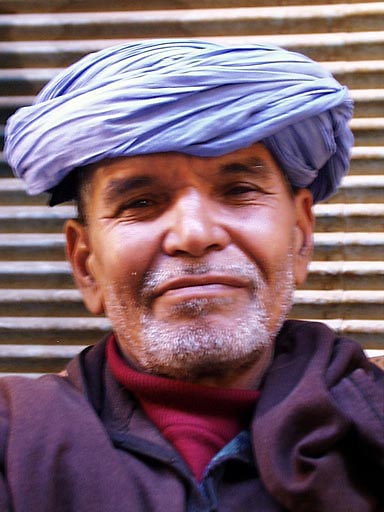Future
Yassein from Morocco was one of my tennis students the summer of 2001. A hunting-gathering seed was planted in life’s little garden. I decided to take a six-month break in the fall.
“They love paper,” said curly-haired Yassein meaning corrupt authorities in North Africa. We sat in his Mediterranean diner. He poured fresh mint tea and said, “You can find enlightenment anywhere.”
I needed new psychic energies, frequencies and a shift in my literary life. He set me up. “You will find it easy to settle in. My mother is in Paris. She is nervous about the place. Here’s a paper. It’s for a six-month rental in Marrakesh and I’ll get her signature. My friend in Casablanca has the keys.”
He briefed local friends on the deal.
“How much are you paying Yassein for the apartment?” said the American insurance agent with a Moroccan wife. She practiced her English selling bras in a department store. Uplifting.
“We’ve agreed on two hundred a month depending on the condition of the place.”
“Oh,” said his wife, “you’ll absolutely adore the place. We’ve been there many times.”
“Yes, my wife is very well connected. Her father used to be with the national police.” I smelled an interrogation. They showed me travel photos. In one he wore a dark blue suit and tie next to a naked camel.
In late August I gave Yassein’s girlfriend, Bashira, a Pakistani with two kids and one on the way, a check for two months. “Yassein’s in Morocco,” she said.

He’d gone home as a fake tour guide when in reality he was scrambling around paying off a Berber family to get out of an arranged marriage. His mother in Paris had set him up with a village girl.
While his relationship with Bashira helped, Yassein regretted wasting his time in the United States of Amnesia starting and stopping diners selling hummus. He regretted having a mother even though he loved her. She was a pain in the oasis.
Projecting her desire it was everything she wanted for her son. She was the mother of all arranged marriages. She had connections in a village.
“We can control more land now,” she’d told him. “She is a lovely girl. Her family is well off. They own many camels. The oasis is thriving.”
This was all well and good when she was sitting in her Paris flat remembering the Marrakesh cinderblock hovel. Where Yassein’s ancestors drank tea and plotted Spanish invasions. She was renovating the place for tourist dollars. Paris was a world away. He was her front man.
“You will marry this village girl,” his mother ordered. “It is our duty, your duty. Family first. You are my eldest, never married and now’s the time. Think of it as a tradeoff, an extension of our relationship. It is a connection to our heritage and our community. This is your destiny and honorable for us.”
He married the girl to please his mother. He didn’t like it. It was a gigantic hassle and complicated his life. He’d been in the states long enough to see new futures.
It was an arranged marriage and he was snared in family schemes and trapped by traditional expectations. How things were done in the desert. It was all about relationships and consolidating resources.
It took him a year to finalize his plan. He was a juggler in a circus routine and his mother cracked the whip.
He kept the Berber girl and her family on hold. He blamed time, lack of money, no visas, no tickets, no way he told them. Not now. Later. He loved the word later. It was a negotiating art form in a culture where a century is nothing.
They bought it. He knew they had no choice. Their daughter was married and that was that.
“Sit tight,” he said. “Let her take English classes or run around chasing invisible paperwork in the notoriously corrupt and inefficient system.” They didn’t understand the tight part. He simplified it for them.
“Be patient.”
A player and hustler, he was an expert at dragging it out. He planned a way to get out of it. He set it up and played his trump card. Money talks.
He returned in August and bought her family off to forget the whole thing. They took their daughter back using his cash to buy land and livestock. She resumed hauling water, collecting wood, cooking and cleaning. Her future was done, finished and finalized. She was as good as dead.
Yassein took care of the paperwork, greased palms, got on a plane, returned to Bashira and forgot the mess. He’d never liked these arranged marriages and knew it was all about deceit, lies and manipulation.
When his mother heard what happened she was furious. “You’ve disgraced our family,” she screamed on the phone. She was so mad she conjoined her French and Arabic polymorphic syllables in the City of Electricity. She fried on the grid.
“Somebody had to pay,” he said. He didn’t say she gave him a migraine. “There’s something wrong with the line mother. I’ll call you back.”
Bashira didn’t know the backstory. She played her role with Oscar potential. Yassein played her.
“I’ve always wanted to go there,” she said the week I left. “It’s Yassein’s ancestral home. I’ve dreamed being there, taking care of the place, meeting the people, settling into the flow, the rhythm of the land. Smelling the spices.”
Smelling a fascinating opportunity I jumped into the future.
ART - Adventure, Risk, Transformation - A Memoir







 Share Article
Share Article 
